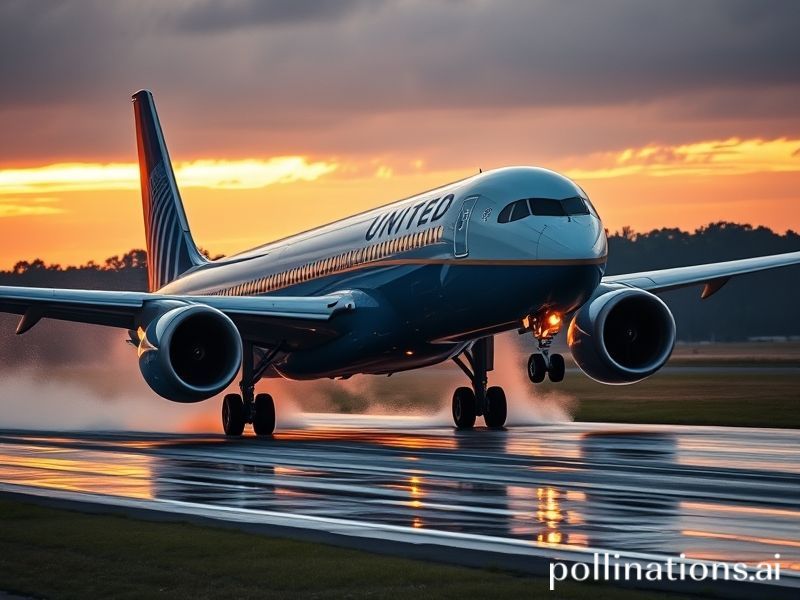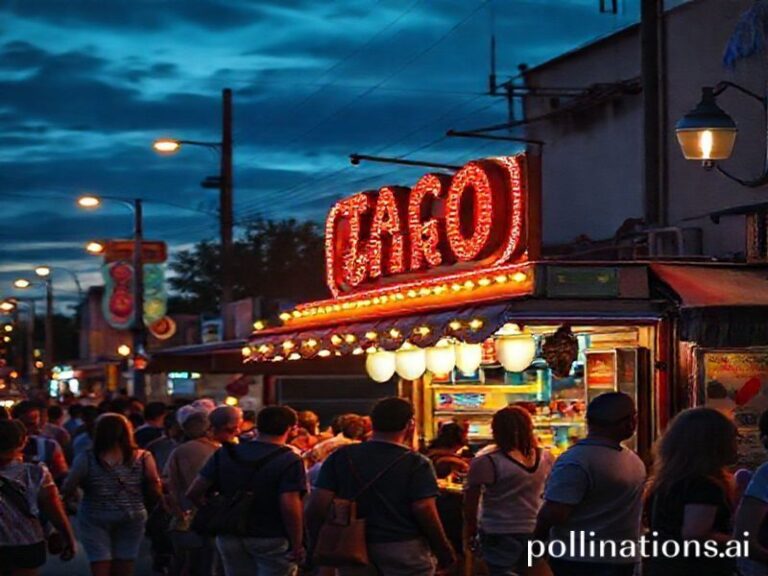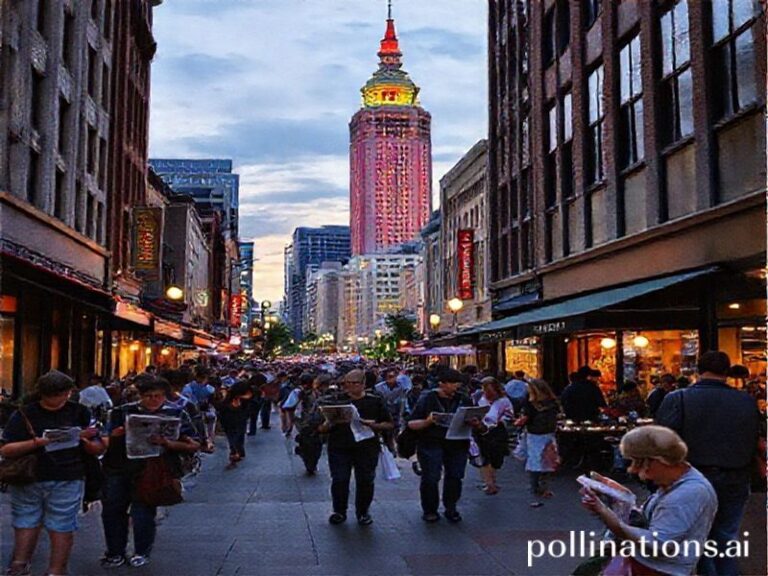United Airlines Delays Go Global: How One Airline’s Schedule Became the World’s Shared Migraine
United Airlines Flights: How One Airline’s Schedule Chaos Became the World’s Shared Migraine
By Desmond “Desi” O’Rourke, International Correspondent
Geneva—From the glassy corridors of the Palais des Nations to the sweaty visa queues of Dubai, the same lament echoes: “My United flight’s delayed again.” What began as a charmingly American tradition—turning boarding passes into lottery tickets—has metastasized into a global spectator sport. Friends in Nairobi now time their WhatsApp memes to the moment UA’s app coughs up yet another gate change (always farther from the lounge, naturally). In Singapore, a finance minister recently cited United’s on-time performance as a cautionary metric for supply-chain resilience. Yes, the airline that once asked us to “fly the friendly skies” has instead taught the planet to expect turbulence before takeoff.
The numbers are almost poetic in their cruelty. United canceled roughly 14,000 flights last winter—a figure roughly equivalent to the entire annual departure roster of Iceland. Each scrubbed segment triggers dominoes from Heathrow to Hong Kong: honeymooners stranded in Newark discover that São Paulo consultants miss their Lagos connection, which in turn delays an NGO’s malaria-bed-net drop in Malawi. The butterfly effect now wears navy polyester and serves lukewarm Chardonnay.
Why should anyone outside the United States care? Because United’s network is less a route map than a vascular system for global capitalism. Kill the artery from Houston to São Paulo and the price of Arabica futures twitches in London; delay the Delhi–Chicago run and a Jaipur textile tycoon defaults on a Rotterdam shipment. We’ve quietly allowed one carrier’s schedule to become the circadian rhythm of world trade. Insomniac yet?
The airline’s public explanations are a masterclass in multinational buck-passing: “FAA staffing shortages,” “Canadian wildfire smoke,” “a missing screw in a Frankfurt de-icing truck.” Somewhere, a PR intern is Googling “new excuses in Swahili” just to stay ahead of the backlash. Meanwhile, European regulators mutter about slot forfeiture, Asian travel bloggers monetize their 12-hour tarmac sitcoms, and South American passengers perfect the art of sleeping across three molded-plastic chairs without surrendering their duty-free rum. Civilization advances, one canceled flight at a time.
Of course, United is hardly the only airline to treat punctuality as optional. But it is the only one whose dysfunction doubles as geopolitical tea leaves. When United suspends Tel Aviv routes for “security reassessment,” every embassy in the Levant hits refresh on the Ops Center monitor. When it quietly adds extra segments to Warsaw and Krakow, Eastern European defense ministers start ordering coffee by the keg. The tailfin may read UNITED, but the signal is unmistakably NATO-adjacent.
There is, naturally, a class dimension to this tragedy. Business travelers—those platinum-card holders who treat airline status like minor nobility—now huddle in Priority Lounges from Frankfurt to Manila, swapping war stories about the time United rerouted them through Guam for reasons known only to a sadistic algorithm. One hears whispers of an elite cadre who purposely book the most baroque itineraries just to harvest miles and existential dread in equal measure. They call themselves “delay chasers,” the frequent-flyer equivalent of storm spotters, minus the dignity.
And yet, humanity adapts. Kenyan entrepreneurs sell color-coded “United Delay Bingo” cards; French philosophers publish dense tracts on “The Phenomenology of the Boarding Queue.” In Seoul, a pop-up restaurant recreates gate C94 at O’Hare, complete with broken Wi-Fi and overpriced sandwiches—diners pay extra for the authentic experience of missing a connection while eating. Dystopia sells when it tastes like smoked gouda on ciabatta.
So, what’s the takeaway for the worldly reader? Simple: next time you watch United’s blue globe spin on the departure screen, remember it’s not just your vacation in Cancún hanging in the balance—it’s Peruvian asparagus reaching Paris, German machine parts reaching Detroit, and a Ghanaian coder making her first trip to Silicon Valley. We are all hostages to the same indifferent fuselage. Buckle up, order the merlot, and pray the pilot isn’t stuck in the same traffic jam you are. The friendly skies have gone multinational, and irony is the only in-flight entertainment still guaranteed to work.







